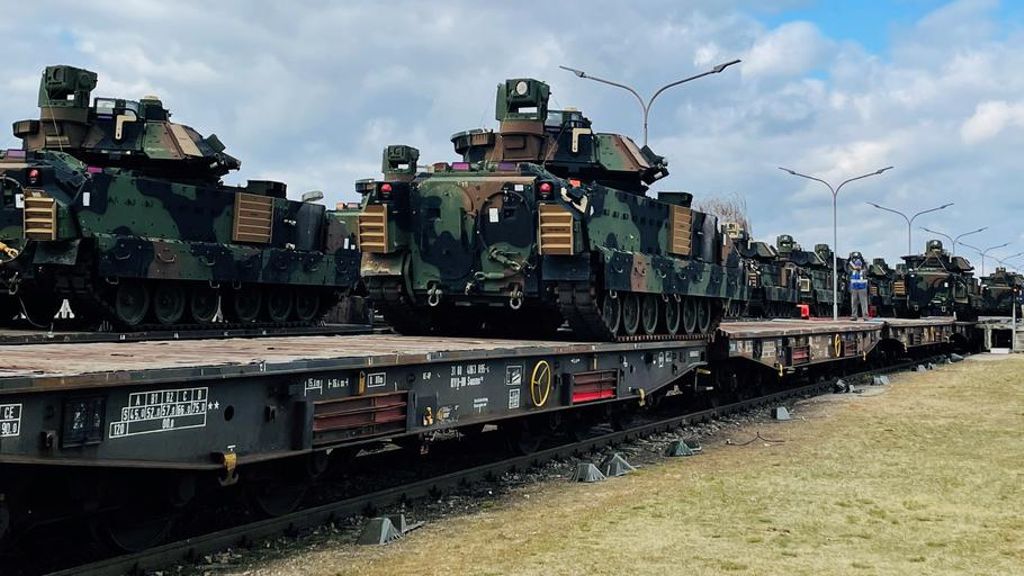Weapons and ammunition that U.S. soldiers are moving across Europe and transferring to Ukraine at a logistics site in Poland risk being lost or stolen because security measures aren’t being observed consistently, a Pentagon investigation has found.
In one lapse, a batch of Bradley Fighting Vehicles with machine guns inside was mistakenly left unguarded at the site, according to a Defense Department Inspector General report.
The watchdog agency’s previously classified findings were released publicly on Monday.
Since Russia’s invasion of Ukraine in February 2022, the U.S. alone has given Kyiv more than $40 billion in security assistance.
Some donated military equipment is initially sent from the U.S. to air and sea ports in Europe. Other supplies come directly from U.S. military facilities on the Continent.
American service members transport all of it to depots on NATO’s eastern flank, where it’s transferred to Ukrainian trucks and trains.
The IG investigation focused solely on military aid being handed over at a major Polish logistics hub before it is moved by rail into Ukraine. The location’s name was redacted in the report.
Overall, American military personnel have “effectively planned, coordinated and executed” the ground movement and transfer of the aid, the report said.
But it also warned that personnel are not consistently adhering to security controls, which exist partly to prevent arms, ammunition and explosives from getting into the hands of criminals and terrorist groups.
The evaluation was conducted between January and June. Investigators traveled to Poland in March to observe two missions in which aid was brought to a railway yard and transferred onto Ukrainian trains.
One of the transfers was said to have involved 60 containers that arrived by German rail, along with six M109A6 howitzers and six M992 artillery ammunition carriers.
The other was a transfer of 14 M2A2 Bradleys, 12 howitzers and seven M992 ammunition carriers from commercial line haul trucks, according to the report.
In both cases, investigators found that troops tasked with guarding the equipment were “not completely prepared” for their mission.
By Phillip Walter Wellman
Read Full Article on Stars and Stripes







